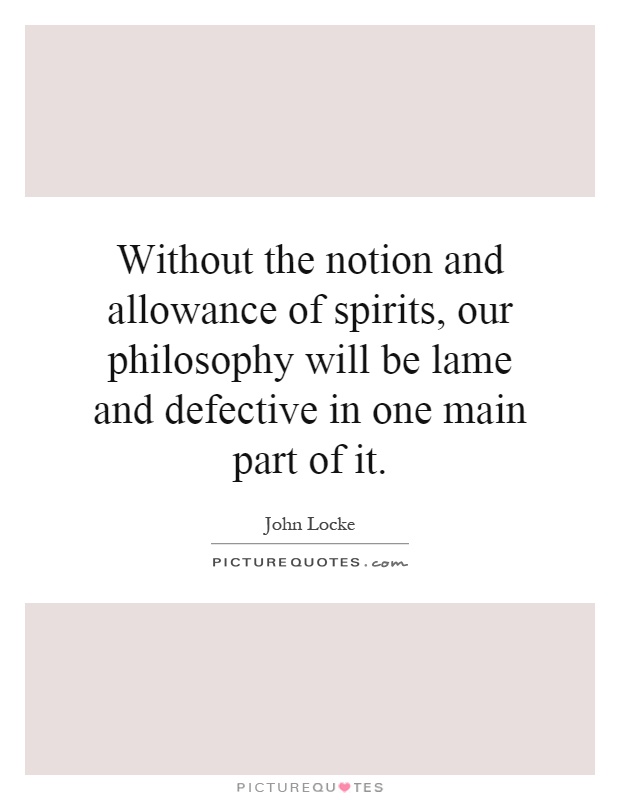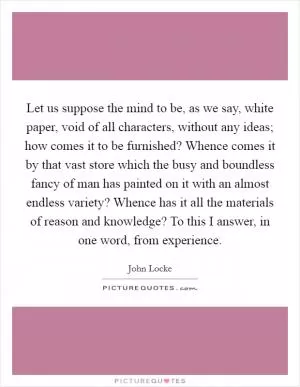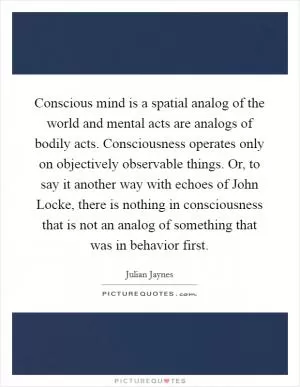Without the notion and allowance of spirits, our philosophy will be lame and defective in one main part of it

Without the notion and allowance of spirits, our philosophy will be lame and defective in one main part of it
John Locke, a prominent figure in the Enlightenment era, was a firm believer in the importance of spirits in shaping human philosophy. In his works, Locke argued that without the notion and allowance of spirits, our philosophy would be incomplete and lacking in a crucial aspect. He believed that the existence of spirits, or immaterial beings, was essential for understanding the complexities of human nature and the world around us.Locke's philosophy was deeply rooted in empiricism, the belief that knowledge comes from sensory experience. However, he also recognized the limitations of empirical knowledge and the need for a more nuanced understanding of the human mind. According to Locke, the notion of spirits provided a framework for understanding the complexities of human consciousness, emotions, and moral reasoning.
For Locke, spirits were not just supernatural entities, but also a fundamental aspect of human psychology. He believed that the mind was composed of both material and immaterial elements, with the latter playing a crucial role in shaping our thoughts, beliefs, and actions. Without acknowledging the existence of spirits, Locke argued, our understanding of human nature would be incomplete and our philosophy would be lacking in a crucial aspect.
Furthermore, Locke believed that the notion of spirits was essential for understanding the nature of morality and ethics. He argued that moral principles were not simply a product of social conventions or rational deliberation, but were also influenced by spiritual forces. By recognizing the role of spirits in shaping our moral beliefs and actions, Locke believed that we could develop a more comprehensive and nuanced understanding of ethics.












 Friendship Quotes
Friendship Quotes Love Quotes
Love Quotes Life Quotes
Life Quotes Funny Quotes
Funny Quotes Motivational Quotes
Motivational Quotes Inspirational Quotes
Inspirational Quotes